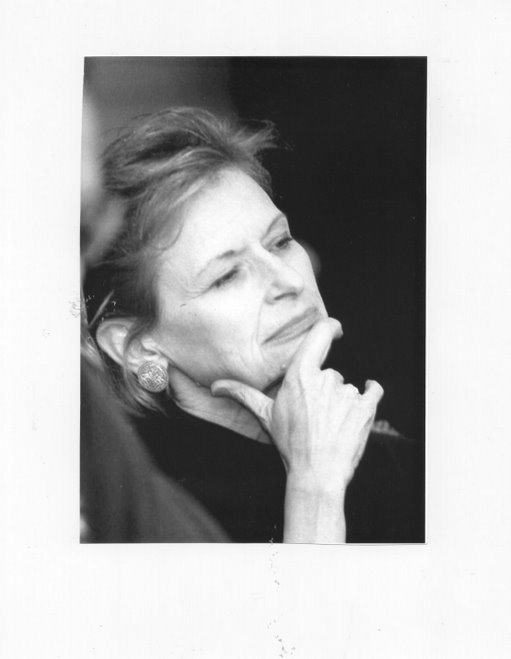“I have been young, and now I am old.” Psalm 37:26
When did I first begin thinking of myself as old? Old is not a term
much valued today unless it refers to money or furniture, in which
case we actually prefer “antique.”
Aging is not much better, but it’s preferable to old. Aging is a
rather vague category, implying only a direction, not a destination..
After all, aren’t we all aging? (The government’s Administration on
Aging statistics tries to soften the blow of the blunt instrument of
language by calling those 65 and up “older,” slightly less offensive
term.)
At sixty my skin was undeniably aging; it was the vellum on which my
future was etched. My arm had become a mosaic of tiny trapezoidal
scratches. The surface of my legs began to look like alligator skin.
Indented necklaces grooved my throat. My eyelids lapped over
themselves.
And everything, not only my skin but also my eyes, my mouth, my lower
intestine, dried out like the shore of a droughty Texas lake. The
dust-to-dust part of dying obviously begins early.
Still, at that point, I figured I was only in the late-middle-age
category. Not old, or even older. Just aging.
Even at sixty I didn’t think of myself as old. Old meant my mother’s
generation. Permanent waves. Gathered skirts. Breasts closer to one’s
waist than one’s shoulders. A way of moving with tentative slowness. A
downy upper lip. Not going to movies, especially R rated ones because
they were full of crashes, explosions, and too much skin and violent
language. It meant ladies’ luncheons at quiet tea rooms with chicken
salad on a lettuce leaf. Guided tours. Conversations about medications
and doctors’ visits. Medical tests with capital letters for names.
I had been diagnosed in my late fifties with glaucoma. A year later I
had to give up driving. This was my first big loss. A loss I couldn’t
deny or ignore. And it was Irreversible, there being no cure for
glaucoma. I think this loss helped me to nudge my mind closer to
accepting old as a modifier for me.
Old, I was beginning to understand, meant an unremitting series of
losses, ones impossible to remedy or restore. As an aunt told me,
“Your friends die and your doctor retires.”
When I was young, change seemed exciting. Sameness was boring. I
found it challenging to keep up with the latest thing, to live on the
edge, to ride the cultural wave.
But I no longer find body-surfing through our morphing culture
exhilarating. The changes that everyone else -- at least everyone
younger than me -- seems to find congenial, only isolates, even
alienates me. My attitude is slipping dangerously close to those I
used to deplore in my parents and grandparents, suspecting, if not
outright condemning anything new, everything unfamiliar.
This change-resistant mental state of the elderly happens on a
cellular level too. As cells age, they become less able to absorb
sodium and potassium from the bloodstream, chemicals necessary to
sustain life. At 88, my father, always a big salt lover, could not eat
enough potato chips to beef up his sodium level, nor enough bananas to
keep his potassium doing its job. Not even pill supplements helped. As
cells walls harden and become impermeable, it does no good to pour
more chemicals into the system. His cells simply refused to let them
in, just as his mind rejected new information or to change its
responses to the outside world.
Which is not to say I am wrong when I find contemporary music
appalling or disagree with my daughter about what constitutes an
acceptable movie for an eight-year-old to watch. I am indeed set in my
ways, some of which I know to be merely long-established habits and
others which I believe are valid. And valuable.
For I do have, besides a body and a brain, a spirit, the source of
will and, if I work at it, wisdom. I retain the power to evaluate and
to choose. Part of the wisdom of elders is knowing when to speak and
when to keep silent. I figure I am still learning that lesson.
Another part of wisdom is accepting – no, claiming – my identity as
an old, not just older, person. We often start making this choice in a
half-joking sort of way. “Will you help this old lady reach that can
on the top shelf?” I ask the grocery stocker. He grins and so do I.
But over time I have come to say quite directly that I am old. Yet
one needs to train others to accept the statement too, not as a
derogatory designation but as a mere statement of fact.
“Oh no!” they protest. “You’re not old.” Or even worse, “You’re only
as old as you feel.” To which I respond that I feel old.
Even my rheumatologist, whose practice is predictably and primarily
among old people, replied to my claim of age, “Oh, don’t say that.
You’re not old till you’re a hundred.”
So I said, quite seriously, “There’s nothing wrong with old, you know.”
This is a matter of identity, this being old. To disclaim one’s age
is to reject who we are. To be shamed by our bodies, the slower
workings of our limbs and neurons, our increased dependency on others.
That’s why I like the unadorned statement of the psalmist: “I have
been young, and now I am old.” It acknowledges one’s experience of
both ends of life. It affirms their equal value.
Not accepting our identity as old feeds fear, desperation, and shame.
It deprives us of the gratitude, peace, and joy that should be ours.
Monday, January 11, 2010
Subscribe to:
Comments (Atom)
